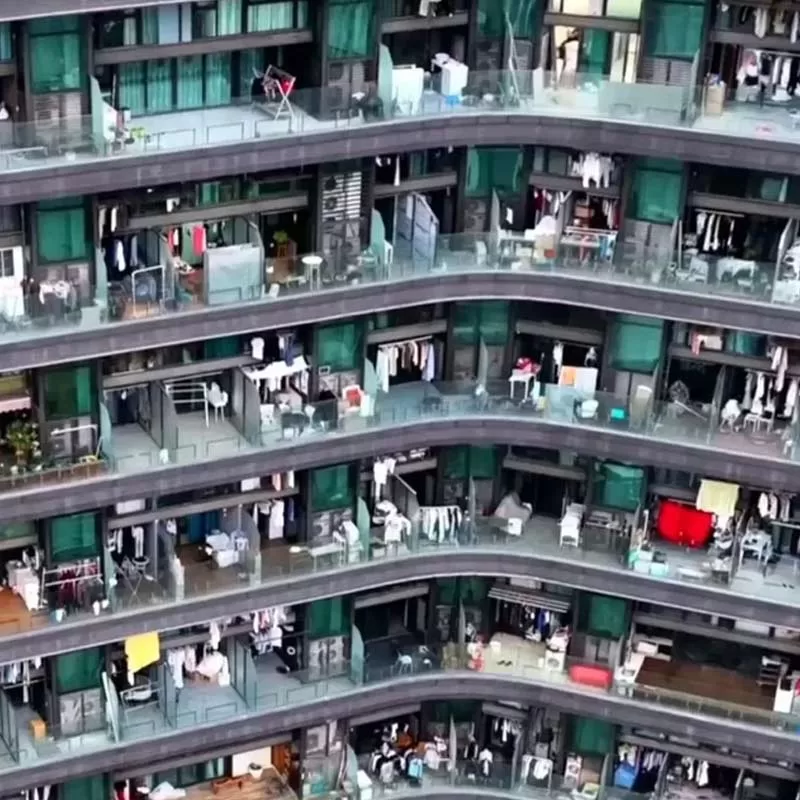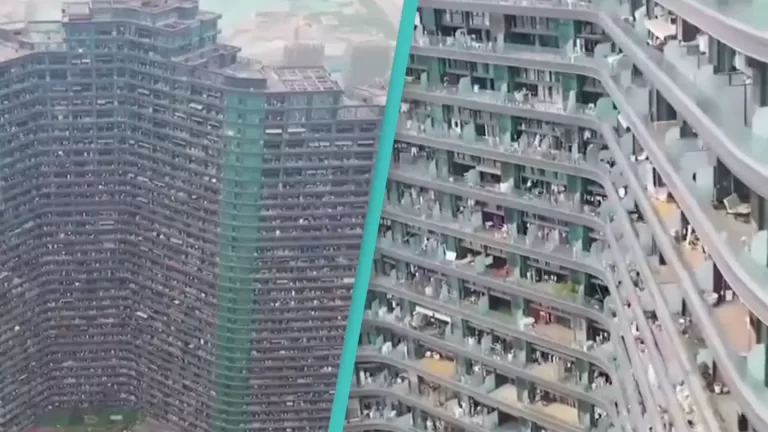Inside a ‘Dystopian’ Apartment Block Where That Houses Over 20,000 Residence
In the vibrant city of Hangzhou, China, the Regent International apartment complex has emerged as a landmark of modern urban living, garnering viral attention for its staggering scale and self-sufficiency. Designed by Alicia Loo, renowned for her work on the iconic Marina Bay Sands Hotel in Singapore, this innovative structure stands 675 feet tall and is uniquely shaped like an “S.” Capable of housing up to 30,000 residents, it currently accommodates around 20,000 people, making it one of the most densely populated residential buildings in the world.
The design of Regent International is a remarkable blend of architecture and urban planning, aiming to create a community that mirrors the functionality of a small town. Within its expansive walls, residents find an array of amenities that cater to virtually every aspect of daily life. From diverse dining options and swimming pools to grocery stores and nail salons, the complex is a self-contained ecosystem. This wealth of services provides unparalleled convenience, particularly attractive to young professionals and students who thrive on accessibility and efficiency.

Rents in Regent International are notably affordable, ranging from approximately $200 to $600 per month, making it a viable option for a demographic often priced out of urban housing markets. The affordability, combined with the wealth of amenities, has led to a diverse community within the complex, with residents from various backgrounds and professions. The allure of living in such a dynamic environment fosters a sense of camaraderie among residents, creating a unique community spirit.
However, despite its many advantages, Regent International has sparked debates over the implications of living in such a high-density environment. Concerns have been raised regarding privacy, noise, and the overall quality of life in a space designed to house so many individuals. Critics argue that the sheer scale of the building may lead to a lack of personal space and increased competition for communal resources. Living in close quarters can present challenges, particularly regarding noise levels and the potential for conflicts among neighbors.
To address these concerns, some units within the complex feature balconies, providing residents with a modicum of private outdoor space. These small retreats allow individuals to step outside and enjoy a breath of fresh air, adding a layer of comfort to their urban lifestyle. The presence of these balconies serves as a reminder that, even in a densely populated environment, opportunities for personal space and relaxation can exist.

Moreover, the building’s design emphasizes sustainability and eco-friendliness, a crucial aspect of modern urban development. Regent International incorporates green technologies and energy-efficient systems to minimize its environmental impact. This commitment to sustainability not only benefits the residents but also aligns with broader global efforts to create more responsible and livable cities.
The architectural vision behind Regent International represents a bold approach to urban housing, seeking to balance massive capacity with the challenges inherent in communal living. The design invites a new paradigm in which urban centers can accommodate growing populations while providing essential amenities and fostering a sense of community.






